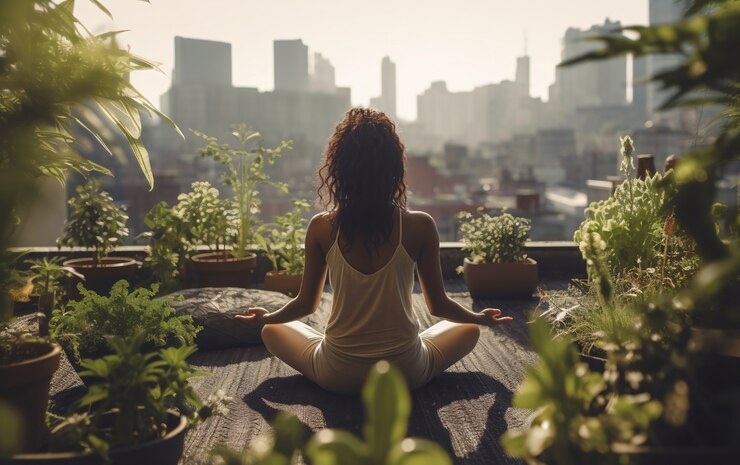In today’s fast-paced world, many people find themselves caught in a perpetual cycle of overthinking, stress, and anxiety, unable to quiet the constant chatter of their minds. The relentless barrage of information and stimuli from the digital age has left many feeling overwhelmed and disconnected from themselves. Read More
The Power of Mindfulness:
Mindfulness is the practice of being present in the moment, fully aware of one’s thoughts, feelings, and sensations without judgment or attachment. At its core, mindfulness involves paying attention to the present moment with openness, curiosity, and acceptance. While mindfulness has long been associated with mental health benefits such as stress reduction and improved emotional regulation, emerging research suggests that its benefits extend far beyond the realm of mental well-being.
Benefits of Mindfulness for Mental and Physical Health:
The benefits of mindfulness practice are manifold, impacting both mental and physical health in profound ways. Mentally, mindfulness has been shown to reduce symptoms of anxiety, depression, and rumination while enhancing resilience, self-awareness, and emotional intelligence. Physically, mindfulness has been linked to improvements in immune function, cardiovascular health, and pain management, as well as reductions in inflammation and stress-related hormones.
How to Practice Mindfulness:
Practicing mindfulness doesn’t require fancy equipment or extensive training; it simply requires a willingness to be present and attentive to the moment. Here are some simple ways to incorporate mindfulness into your daily life:
- Mindful Breathing: Take a few moments each day to focus on your breath, paying attention to the sensation of each inhale and exhale. Notice the rise and fall of your chest and abdomen, allowing your breath to anchor you in the present moment.
- Body Scan Meditation: Set aside time to conduct a body scan meditation, systematically moving your awareness through each part of your body from head to toe, noting any sensations or tension you may encounter and gently releasing it with each exhale.
- Mindful Movement: Engage in mindful movement practices such as yoga, tai chi, or walking meditation, paying attention to the sensations of movement and the rhythm of your breath as you move through space.
- Daily Mindfulness Check-ins: Throughout the day, take brief moments to check in with yourself and tune into your thoughts, emotions, and bodily sensations. Notice any patterns or triggers that arise and practice responding with compassion and non-judgment.
Conclusion:
In a world inundated with constant stimulation and distraction, mindfulness offers a refuge—a way to slow down and reconnect with ourselves amidst the chaos. By cultivating mindfulness, individuals can learn to quiet the noise of their minds, reduce stress and anxiety, and foster greater clarity, presence, and well-being. As our lives become increasingly fast-paced and demanding, the practice of mindfulness serves as a gentle reminder to pause, breathe, and simply be. So, take a moment to slow down, breathe deeply, and savor the richness of the present moment—for in the here and now, true peace and contentment await.

